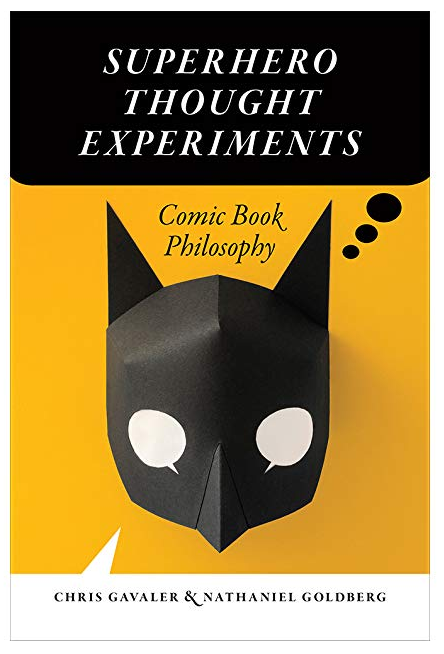Tag Archives: Captain Confederacy
March 3, 2014 The Confederate Superheroes of America
A sure sign you’re running for President: firing your racist sidekick.
Last summer Kentucky Senator Rand Paul, by “mutual decision,” accepted the resignation of his aide Jack Hunter, AKA the Southern Avenger. Rand is having trouble climbing out of his father’s Libertarian shadow along with all those shadowy white supremacists the Libertarian brand attracts, so Hunter’s views on Southern succession, the Lincoln assassination, and whether “a non-white majority America would simply cease to be America” were declared a “distraction.”
Hunter also retired the Southern Avenger (he reportedly adopted his radio shock jock persona during a conversation with a bottle of Jim Bean), but not before co-writing Paul’s The Tea Party Goes to Washington. Hunter did not co-write the sequel, Government Bullies, which was an even bigger “distraction” because the Senator plagiarized it instead. That would get him expelled from my college, but the White House has different standards.
I teach at Washington & Lee University, in a smallville known as a War-Between-the-States tourist Mecca, so I’m familiar with all brands of Southern Avengers. The remains of not one but two Confederate generals rest within a half-mile stroll of my front door. Confederate flags are common—though, unlike Mr. Hunter, most folks don’t sport them on superhero-style masks. Even Captain Confederacy (a creation of comic book writer and former Minnesota gubernatorial candidate Will Shetterly) retired his mask when his series moved to Marvel’s Epic back in 1991. The comic was set in an alternate universe in which the Confederacy won the Civil War (apparently the same universe Newt Gingrich visited for his 2005 Gettysburg novel). After Shetterly retired his first Captain, he has a black woman take over the identity, draping Old Dixie across her breasts.
If that sounds implausible, then you didn’t attend my town’s council meeting in which Southern Avengers protested the banning of Confederate flags from city flagpoles. I can’t criticize since I used to wear the same image across the back of concert t-shirts, believing it represented nothing more than a subgenre of rock. I was sixteen and still preferred Lynyrd Skynyrd’s Gimme Back My Bullets over R.E.M.’s Fables of the Reconstruction.
Civil War reenactors, another common spectacle in Lexington, VA, attended the council meeting too. W&L borders the Virginia Military Institute where I watched a legion of gray-clad and hoop-skirted extras cheer a regal Stonewall Jackson while shooting a scene for the 2003 Gods and Generals. W&L declined the film company’s request to shoot on our campus. For Somersby, crews shoveled the historic downtown streets with dirt and angled the Exxon station out of shots. I’ll watch Jodie Foster in anything, but I like Somersby for its time period. Reconstruction is way more interesting than the Civil War.
Marvel movie guru Joss Whedon agrees. He started writing his TV series Firefly after reading Michael Shaara’s The Killer Angels. Whedon also took an undergraduate class from Richard Slotkin, author of Gunfighter Nation, a seminal study in American frontier mythology. Whedon sets his distopic future six years after a Civil War with a dispossessed Confederate soldier (he sings “We shall rise again” in the premiere) for a space captain. “Mal’s politics,” says Whedon, “are very reactionary and ‘Big government is bad’ and ‘Don’t interfere with my life,’” attitudes Senator Rand and his former sidekick sing about too. But unlike the Tea Party, Whedon sees both sides: “sometimes he’s wrong—because sometimes the Alliance is America, this beautiful shining light of democracy. But sometimes the Alliance is America in Vietnam: we have a lot of petty politics, we are way out of our league and we have no right to control these people. And yet! Sometimes the Alliance is America in Nazi Germany. And Mal can’t see that, because he was a Vietnamese.”
Actually Mal is the very Caucasian Nathan Fillion, but his second in command, like the second Captain Confederacy and at least one of the flag-wearing protesters at the Lexington council meeting, is an African American woman (AKA, Gina Torres). Whedon’s Confederacy never had slavery. Which is why his take on the Reconstruction is both watchable and a complete cop-out. In some ways, I prefer Edgar Rice Burroughs’ dispossessed Confederate soldier, John Carter. He heads West to dig gold and fight Injuns but ends up on Mars instead—where, surprise surprise, he gains superpowers and champions a ruined race of aristocrats against four-armed apes and green heathens. The Princess of Mars gave me allegorical whiplash, but at least Burroughs’ politics aren’t hard to decode. The South is dead, long live the South.
John Carter and Mal Reynolds are both Reconstruction-fueled space cowboys, which makes them descendants of the real life Southern avenger Jesse James. During the war, James fought as a Missouri bushwhacker against local Union militias. After Richmond fell and General Lee surrendered, the pardoned general-in-chief served as president of my university. Jesse James kept fighting. He saw his campaign of train and bank robberies as resistance to Republican-lead Reconstruction. After his murder in 1882, dime novelist converted him into a gunslinging Robin Hood. Like the more recent Southern Avenger, James was also a political columnist. Jack Hunter wrote for the Charleston City Paper, where his articles remain online because his editor refused his request to remove them. James wrote his diatribes for the Kansas City Times, where the owner was a fellow vet working to restore ousted successionists to office.
Missouri elected Democrat Senator Francis Cockrell in 1875, who went on to serve five terms before retiring. To the best of my knowledge, Jesse James was never his aide nor helped him plagiarise any books, but the senator was evidence that the Radical Republicans (their term) had lost control of Reconstruction. The era formerly ended in 1877 when President Hayes withdrew the last federal troops. Their departure also marks the end of the South’s most famous team of masked avengers, the Ku Klux Klan. They’d started as a social club of Confederate vets in Pulaski, Tennessee, but grew into paramilitary groups that openly murdered opponents and police.
Like the X-Men, the Klan also wore identical costumes while lead by a man codenamed “Cyclops.” The X-Men attract an impressive range of southern mutants, including Rogue, Gambit, Cannonball and the Blob. Technically DC’s Swamp Thing is a Southerner too, since he crawled out of a Louisiana swamp, but he and his superhero kin are no Southern Avengers. Superman first battled the Klan on the radio 1946, and he’s been followed by the Defenders, Black Panther, Batman, and both the Justice League and the Justice Society.
Hell, even the Southern Avenger hates racists now. Hunter blames all those old slurs of his on that pesky mask: “Whenever I put on that wrestling mask, I took on a persona that was intentionally outrageous and provocative. I said many terrible things. I disavow them.” The unmasked Hunter now criticizes fellow Republicans who dismiss “the idea that racism is actually a problem. I used not to see it. For that, I am very sorry.”
That’s more of an apology than the Confederacy ever offered its African American population. I wouldn’t call it superheroic, but if the Southern Avenger can transform himself, maybe there’s hope for the rest of our disunited States too.
Tags: Captain Confederacy, Jack Hunter, Jesse James, John Carter of Mars, Joss Whedon, Rand Paul, Southern Avenger, Will Shetterly
- 5 comments
- Posted under Uncategorized
May 7, 2012 Mitt Romney’s Superpowers
[Addendum 5/10/12:
I want to extend an apology I gave to a friend and colleague in my English department today. He happens to be Mormon and so, quite reasonably, took offense to some of my comments below about Mitt Romney. He dislikes Romney as much if not more than I do, but I let my dislike of the candidate spill into unrelated religious issues. If Romney were Catholic, Muslim, atheist, etc. I would dislike him just as much, and if Obama were Mormon, my vote and praise wouldn’t change one bit.
For the record, I don’t see much difference between Mormonism and any other branch of Christianity. The biggest difference between the smallville of Palmyra and the smallville of Bethlehem are the two thousands years of insulating distance. I grew up Catholic and so know first hand its range of absurdities. Mormonism is no worse or better, just easier to poke fun at because of its comparative youth. Mormonsim, like any other religion or philosophy, has the very powerful potential for finding profound meaning. And based on Mitt Romney’s behaviors as a political candidate, I don’t believe he’s found much.
Or, to return to the superhero metaphor, he’s not using his powers for good.]
The Democratic National Committee has told us since January that Mitt Romney is “two men trapped in one body.” I assume they mean in a shifting policy sense, rather than, say, Bruce Wayne’s bat fetish, or Bruce Banner turning into a green-skinned rage-monster when his blood pressure spikes.
Before the Florida Republican debate, Romney wasn’t even supposed to have blood pressure. There wasn’t room for duality in his mild-mannered character. According to Robert Draper’s analysis last November, Romney’s campaign wanted to make him “exquisitely one-dimensional: all-business man, the world’s most boring superhero.”
The bad news for Democrats is how less boring the talented Mr. Romney became while dispatching his GOP teammates. After Romney came back from his loss in South Carolina, political blogger Markus Ziener complimented him for his choice of weaponry: “The only way one can win against a brawler like Gingrich is to trade in your stiletto for a bazooka.” Ross Douthat quickly reversed that combat advice: “The howitzer worked to dispatch Gingrich, but it won’t work a second time. Instead, to beat Santorum and close out the nomination contest, Romney will need to learn how to campaign with a stiletto.”
A bazooka, a howitzer, and two stilettos. It sounds more like Dr. Doom’s battle armor than Batman’s utility belt. Or maybe adaptability is Romney’s real weapon. Paul Begala draws the former governor as “Plastic Man”: ” a political shape-shifter who will renege on any promise, abandon any pledge, betray any principle to please his audience.” Even one of Romney’s own aides likened him to a human Etch-A-Sketch.
Despite the list of other super-malleable heroes Romney might resemble (Elongated Man, Elastic Lad, Mr. Fantastic), I’ll offer another twist. To understand the policy decisions of the heroic U.S. Federal Reserve vs. the cowardly Europe Central Bank last year, Robert Smith and Zoe Chace of NPR’s Planet Money broke it down in comic book terms: “You can always explain the difference between superheroes by going back to their origin stories, to their founding myths.”
For Romney, those founding myths are literally founding myths, written less than two hundred years ago in the smallville of Palmyra, NY. To political pundits, superpowers are metaphor and hyperbole. In Mormonism, it’s the real deal. Which means the DNC’s dual identity tag may really be the best fit. Literally. Stan Lee called his Marvel superheroes “long underwear characters.” And Mitt, like Peter Parker, wears amazing threads under his streets clothes.
According to many Mormons, Romney’s underwear endows its owner with supernatural powers, most notably invulnerability. There are tales of temple garments, worn as reminders of Church covenants, protecting faithful wearers from fires and car wrecks. The Mormon Church has revised its not-so-ancient scriptures (a kind of Etch-A-Sketch rewriting that comic book companies rely on too), but objects such as divining rods and seer stones used to be strapped to the spiritual utility belt too.
Romney, a former Mormon bishop, also has the power to baptize dead people. His church’s retro-flock include Elvis, Anne Frank, and Adolf Hitler. But when asked on the campaign trail what superhero he would like to be, Bishop Romney went with Superman, a character known for his own boring one-dimensionality. He should have said Dr. Deseret, the Mormon superhero from Marvel’s 1990’s comic book Captain Confederacy. On that alternate Earth, Deseret is a Mormon nation larger than our world’s Utah, and Dr. Deseret is, like Romney, its “special agent of God.”
But then Dr. Deseret is only a drug-enhanced Ninja with abilities far below Romney’s ambitions. Superman says a lot more about him and anyone else who qualifies for celestial glory in the afterlife. Forget the Presidency, Mitt wants actual superpowers. If he puts in the necessary time and training in the spirit world, the former governor of Massachusetts will be eligible for literal godhood. And not just a god of a state or nation but an entire planet.
On Captain Confederacy’s Earth, the South won the Civil War — a possibility Newt Gingrich explored in his own history-altering novel, Gettysburg. Hopefully when Romney becomes god of his own Earth, he won’t Etch-A-Sketch its history too.
Which means Massachusetts would get to keep its Romneycare, a socialistic program that blankets 98% of its population, as opposed to Obamacare’s scrawny 95%. Maybe Massachusetts will also get to keep its corporate taxes, those loopholes in the state tax code that the governor closed to cover his $2 billion budget gap. But as a God-in-Training, Romney promises to provide corporations an instant 20% tax break (up from 10% a few months ago). Fortunately, that will have no negative effect on the national budget and deficit because he will have already lassoed them in the protective power of his undergarments.
I assume there will be no abortions on Planet Romney because high school abstinence education will prevent all unintended pregnancies. That way Romney the God won’t have to reconcile his pro-choice scriptures of the early 2000’s with his revised pro-life scriptures of his two Presidential campaigns.
Also, no gay people on Planet Romney. Not because Romney doesn’t love them – he supported their serving openly in the military and achieving full equality at a pace faster than Edward Kennedy promoted – but because even God wants to be at least a little consistent. So ditto on immigration, campaign finance reform, stimulus packages, and government bail-outs. All mention of these words in the Romney scriptures will be shook out of existence.
As will his tax records. For Romney, Planet Money isn’t the name of a show on NPR. It’s where he was born. When Krypton exploded, it flung Superman into the middle class life of a hard-working farmer’s son. Romney’s one consistent political aim is to keep himself and Planet Money from the same fate. Everything else–social issues, family values, religious convictions–can be endlessly revised and rebooted. But not wealth. It’s the one founding myth Romney will never rewrite. He will protect his home planet, even if the planet the rest of us have to live on suffers for it.
You can see why his campaign wanted voters to think he was boring. Mitt Romney: just your average, magic underwear wearing, godhood aspiring, dual identity, super-malleable, multi-millionaire ubercandidate.
It’s enough to make the first African American President of the United States sound like the conservative choice.
Tags: Captain Confederacy, Dr. Deseret, magic underwear, Mormon afterlife, Mormon undergarments, Paul Begala, Plastic Man, Robert Draper, RomneyCare, Superman
- 2 comments
- Posted under Uncategorized












